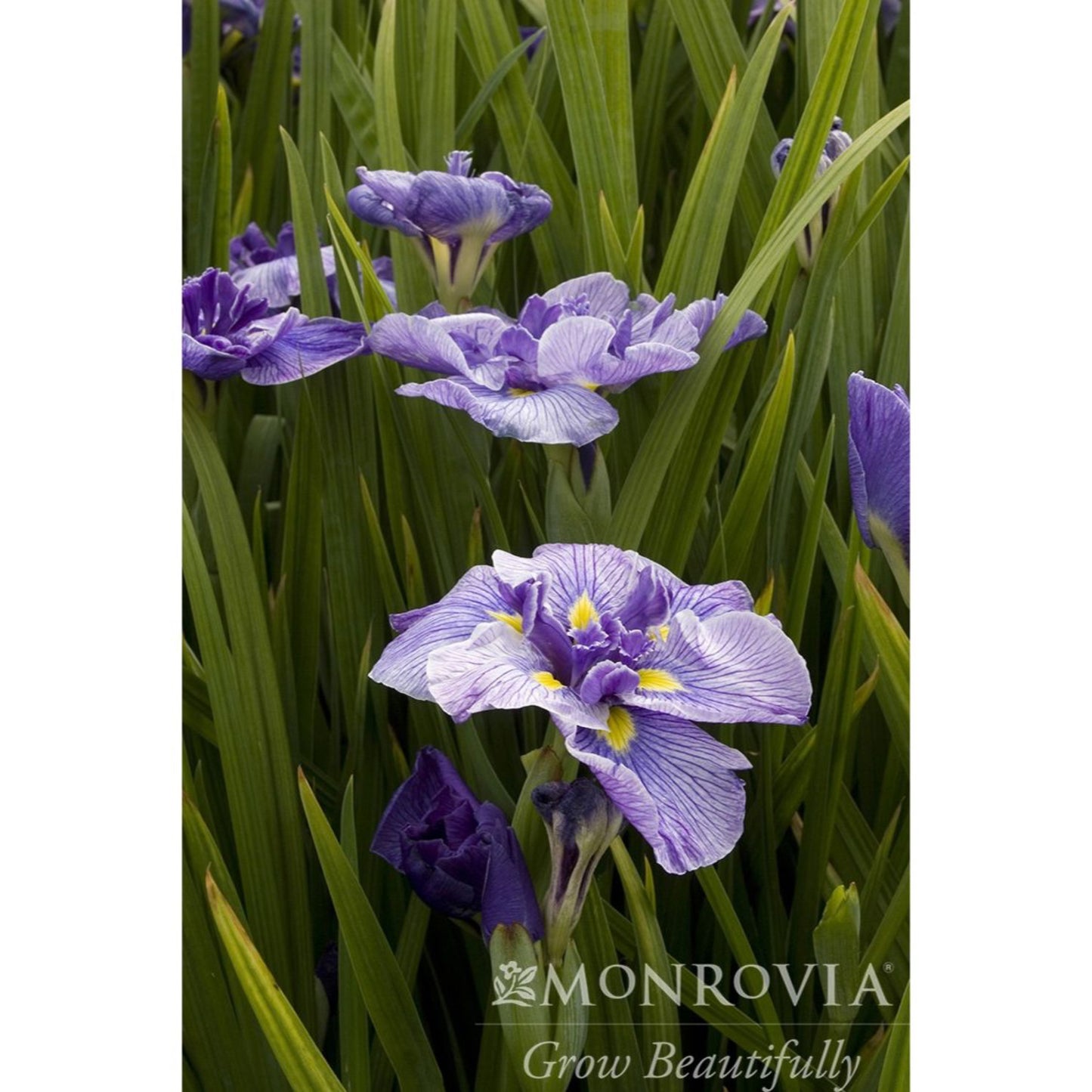Butterflies In Flight Japanese Iris
Butterflies In Flight Japanese Iris
SKU:PER-IRS-BTF-NA-1G
Butterflies In Flight Japanese Iris: A Showy, Low-Maintenance Beauty
Give your garden a touch of elegance with Butterflies In Flight Japanese Iris. This stunning perennial lives up to its name, with delicate, fluttering petals that resemble a group of butterflies taking off. A true conversation starter!
Why You’ll Love It:
- Striking Blooms: Large, ruffled flowers in shades of lavender-blue with a soft yellow throat.
- Easy to Grow: Thrives in moist soil and full sun—ideal for water gardens or rain-prone areas.
- Great for Pollinators: Attracts butterflies and bees for a lively summer display.
- Perfect for Cutting: Its sturdy, upright stems make this beauty ideal for cutting and displaying indoors.
Where to Plant:
Perfect for borders, pond edges, and even large containers. Loves consistently moist soil but doesn’t mind short dry spells once established.
Care Tips:
Water regularly, especially in hot weather. Cut back foliage in late fall for a tidy winter look. Divide clumps every few years to keep plants vigorous.
Bring graceful movement and a touch of the exotic to your garden with Butterflies In Flight Japanese Iris—a floral masterpiece that never fails to impress!


Product Details
-
Product Category
Perennials
-
Product Subcategory:
Irises
-
Botanical Name:
Iris ensata 'Butterflies in Flight'
-
Does Not Ship To:
AZ, OR
-
Mature Height:
2-3 ft.
-
Mature Width:
1.5 ft.
-
Growing Zone:
4-9 outdoors
-
Indoor Growing:
-
Sunlight:
Full Sun
-
Growth Rate:
Moderate
-
Harvest Time:
-
Bloom Time:
Spring and Summer

Planting Directions
<h2>How to Plant & Care for Butterflies In Flight Japanese Iris</h2>
<h2>Planting Instructions</h2> <ul> <li><strong>Location:</strong> Choose a spot with at least 6 hours of sunlight. Partial shade is fine, especially in hot climates.</li> <li><strong>Soil:</strong> Prefers rich, acidic (pH 5.0-6.5), and consistently moist soil. Amend with compost or peat moss if needed.</li> <li><strong>Planting Depth:</strong> Dig a hole twice the width of the root ball and deep enough to keep the rhizome just below the soil surface.</li> <li><strong>Spacing:</strong> Space plants 18–24 inches apart to allow airflow.</li> <li><strong>Watering:</strong> Water deeply after planting and keep the soil moist at all times.</li> </ul> <h2>Container Planting</h2> <ul> <li>Use a large pot (at least 12 inches deep) with drainage holes.</li> <li>Fill with acidic, moisture-retentive soil.</li> <li>Keep well-watered, never allowing soil to dry out.</li> </ul> <h2>Care & Maintenance</h2> <ul> <li><strong>Watering:</strong> Keep soil consistently moist, especially in summer.</li> <li><strong>Fertilization:</strong> Apply a balanced fertilizer (10-10-10) in early spring and after blooming.</li> <li><strong>Mulching:</strong> Add 2-3 inches of mulch to retain moisture and suppress weeds.</li> <li><strong>Deadheading:</strong> Remove spent flowers to encourage growth.</li> <li><strong>Winter Care:</strong> Cut back foliage after it browns in fall. Mulch in cold regions.</li> </ul>

FAQs
<h2>Butterflies In Flight Japanese Iris FAQs</h2>
<h3>1. What makes the Butterflies In Flight Japanese Iris unique?</h3>
<p>This Japanese Iris stands out with its large, ruffled lavender-blue petals that look like fluttering butterfly wings. It thrives in wet conditions, making it perfect for pond edges, rain gardens, or consistently moist soil.</p>
<h3>2. How much sunlight does this iris need?</h3>
<p>It grows best in full sun. Full sun encourages the best blooms, but a bit of afternoon shade can be beneficial in hotter climates.</p>
<h3>3. When and how should I plant this iris?</h3>
<p>Plant it in spring or fall in rich, slightly acidic soil that stays moist. Space plants about 18-24 inches apart and keep the rhizomes just below the soil surface. If planting near water, make sure the roots are submerged but not the entire plant.</p>
<h3>4. Does this iris need special care?</h3>
<p>It's low-maintenance but thrives with regular watering, especially in dry spells. Remove spent blooms to encourage new growth, and trim foliage back in late fall. Every 3-4 years, divide the clumps to keep them vigorous.</p>
<h3>5. Will this attract pollinators or wildlife?</h3>
<p>Yes! Butterflies and bees love its nectar-rich flowers. Plus, if planted near a pond, it can provide shelter for small aquatic creatures while adding beauty to the water’s edge.</p>



